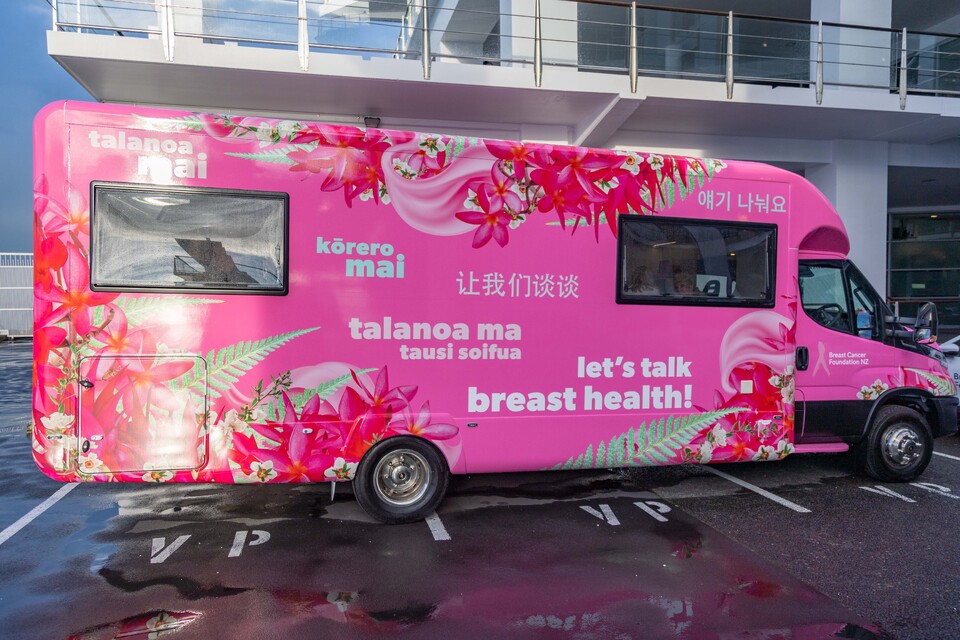Boost for early breast cancer detection in New Zealand
4 Oct 2023
The mission to improve the rates of early breast cancer detection in New Zealand has been given a three tonne, 188 horsepower boost, with BNZ gifting a Mercedes-Benz Sprinter van to Breast Cancer Foundation New Zealand’s fleet of breast health education vehicles.
As Breast Cancer Foundation NZ begins a series of events to mark Breast Cancer Awareness Month, including the Pink Ribbon Walk and the Pink Ribbon Street Appeal, it’s CEO Ah-Leen Rayner, says, “Early detection is one of the best tools we have to beat breast cancer. With this new vehicle from BNZ, we will be able to better support remote parts of New Zealand and ensure all our communities can access life-saving breast health education.”
BNZ CEO Dan Huggins says the gift reflects the bank’s commitment to support the communities it’s proud to serve.
“We’re delighted to support the Foundation’s mission, particularly during Breast Cancer Awareness Month. The Foundation has played a vital role reaching into communities across Aotearoa for decades, and with this contribution we look forward to seeing this life-saving work reach even more New Zealanders.”
Since 2014, the Foundation’s early detection education programme has been run across New Zealand through its Pink Caravan, but the iconic retro vehicle relies on volunteers with the ability to tow it around the country.
The addition of the vehicle gifted by BNZ will enable the Foundation’s nurses and other staff to access remote regions the caravan couldn’t easily get to, allowing the charity to talk to even more women and whānau about the importance of early detection, without relying on volunteers.
The importance of early breast cancer detection is underscored by a ten-year survival rate for women diagnosed early standing at 95 percent. The Foundation, in collaboration with Breast Screen Aotearoa, has been leading the charge, especially in areas with low screening rates.
“We know how important early detection is, particularly for Māori and Pacific women, who have poorer outcomes when it comes to breast cancer,” says Rayner. “That’s why our early detection programme is so vital and is a key theme in our breast health messaging – the importance of regular mammograms and self-checks.”
The former BNZ sprinter van is being overhauled to set it up for community outreach. Once finished, it will boast consultation spaces, technology and an awning for outdoor events, all tailored for breast health education and community engagement. It is also being wrapped in bright pink Breast Cancer Foundation vehicle colours.
“We’re incredibly grateful to BNZ for contributing to our early detection programme, giving us the ability to access more remote locations, be more flexible with the timing of our visits, and increase the frequency of our visits.”
Breast Cancer Foundation NZ’s latest vehicle will be on the road early next year.



